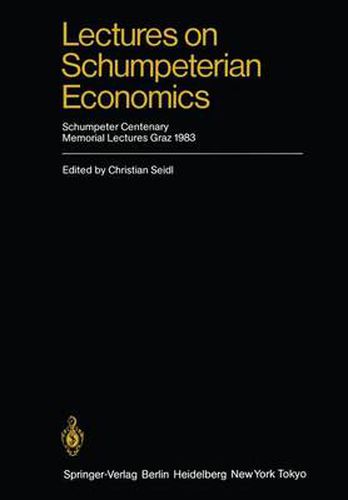Readings Newsletter
Become a Readings Member to make your shopping experience even easier.
Sign in or sign up for free!
You’re not far away from qualifying for FREE standard shipping within Australia
You’ve qualified for FREE standard shipping within Australia
The cart is loading…






This title is printed to order. This book may have been self-published. If so, we cannot guarantee the quality of the content. In the main most books will have gone through the editing process however some may not. We therefore suggest that you be aware of this before ordering this book. If in doubt check either the author or publisher’s details as we are unable to accept any returns unless they are faulty. Please contact us if you have any questions.
Nobel laureate Sir John Hicks has with good reason called the third quarter of the 1 twentieth century the age of Keynes * Sir John nevertheless diagnosed a crisis of Keynesian economics even before this period had expired. But if only a few gifted scholars had foreseen the crisis of Keynesian economics before 1975, this year at least marked the ultimate disenchantment of Keynesian economics. Keynesian economic policy proved ineffective to cope with the economic challenges of the late seventies: unemployment, inflation, and stagnation of economic growth. Alarmed governments resorted to more and more intense remedies out of the Keynesian box of Pandora. But all they got was the creation of additional difficulties, aggravating the situation still more: soaring public debt, extraordinary balance-of-payments deficits, and economic instability. It had been argued until quite recently that capi talism could have survived only in the oxygen tent of government deficit spend 2 ing . But it has become patent since the mid-seventies that it is first and foremost the Keynesian oxygen tent that has produced the present embarrassment of capital ist economies. The present economic malaise in nearly all Western countries has accordingly led to considerable unrest in the economics profession. Somewhat reminiscent of the thirties, a feverish search for alternatives to the prevailing but insufficient econ omic doctrine has begun. Among the candidates to be screened, Schumpeterian economics takes a prominent place.
$9.00 standard shipping within Australia
FREE standard shipping within Australia for orders over $100.00
Express & International shipping calculated at checkout
Stock availability can be subject to change without notice. We recommend calling the shop or contacting our online team to check availability of low stock items. Please see our Shopping Online page for more details.
This title is printed to order. This book may have been self-published. If so, we cannot guarantee the quality of the content. In the main most books will have gone through the editing process however some may not. We therefore suggest that you be aware of this before ordering this book. If in doubt check either the author or publisher’s details as we are unable to accept any returns unless they are faulty. Please contact us if you have any questions.
Nobel laureate Sir John Hicks has with good reason called the third quarter of the 1 twentieth century the age of Keynes * Sir John nevertheless diagnosed a crisis of Keynesian economics even before this period had expired. But if only a few gifted scholars had foreseen the crisis of Keynesian economics before 1975, this year at least marked the ultimate disenchantment of Keynesian economics. Keynesian economic policy proved ineffective to cope with the economic challenges of the late seventies: unemployment, inflation, and stagnation of economic growth. Alarmed governments resorted to more and more intense remedies out of the Keynesian box of Pandora. But all they got was the creation of additional difficulties, aggravating the situation still more: soaring public debt, extraordinary balance-of-payments deficits, and economic instability. It had been argued until quite recently that capi talism could have survived only in the oxygen tent of government deficit spend 2 ing . But it has become patent since the mid-seventies that it is first and foremost the Keynesian oxygen tent that has produced the present embarrassment of capital ist economies. The present economic malaise in nearly all Western countries has accordingly led to considerable unrest in the economics profession. Somewhat reminiscent of the thirties, a feverish search for alternatives to the prevailing but insufficient econ omic doctrine has begun. Among the candidates to be screened, Schumpeterian economics takes a prominent place.